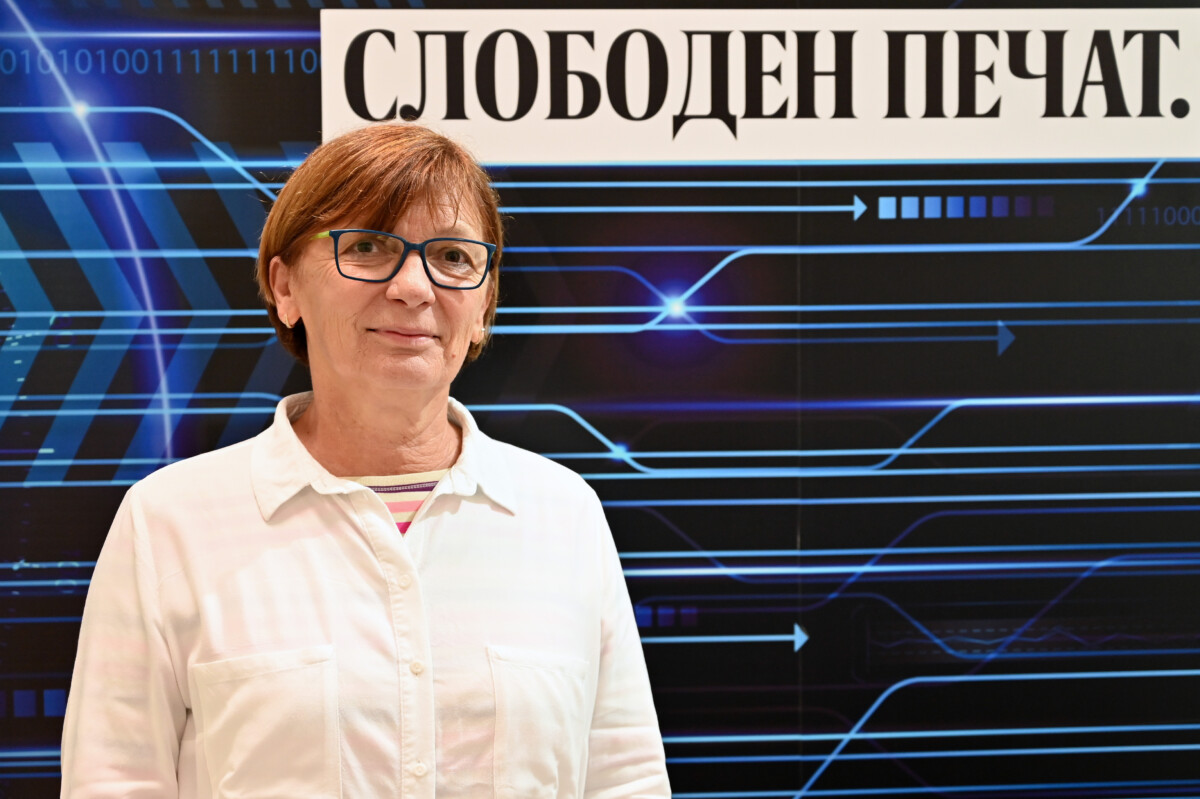The train to Sofia that was delayed for thirty years has arrived in Brussels again

We don't know if Lokvenec in Brussels was talking about the "historic" railway to Bulgaria, about the railway lines in the country, about setting up ramps at unmarked crossings... but it doesn't even matter, because we know the condition of the railways and trains and, especially, those that they had to go somewhere by train
Delegation of the Public Enterprise Railways of the Republic of North Macedonia-Infrastructure, led by the director Harry Lokvenec, is on a working visit to Brussels. As stated in the announcement, Lokvenec, as the head of the delegation, will present the current capital investments in the railway infrastructure in the European Parliament to the MEPs and to other participants and donors.
We do not know what Lokvenec said in Brussels, but there is no need. It doesn't matter if he was talking about the "historic" railway to Bulgaria or the railway lines in the country, or perhaps about setting up ramps at unmarked railway crossings... It really doesn't matter, because we know very well the condition of the railways and trains and, especially, those that they were so lucky to use a train.
Perhaps Lokvenec told them why the railway to Bulgaria is a record-breaking project in the country and explained who and what was announcing and promising everything, starting from the distant year 1993. Maybe he looked back at all the tenders with dates when the first train to Sofia will leave - in 2012 there was a statement that the railway was becoming a reality, then 2017, 2022... 2024 was promised by VMRO-DPMNE if it came to power, but it didn't come, so 2025 was projected, which is still far from reality.
Or maybe Lokvenec complained that every year since 1994, money was allocated in the Budget for the railway, but it was diverted for other needs.
And it's not that in Brussels they don't know how far the investments in the railway infrastructure are, because a large part of the money comes from there. 2018 is not so far away when the then Minister of Transport and Communications, Goran Sugareski, announced that they had secured 145 million euros, of which 70 million were grants, and then projected the date that the railway would be ready by 2025. He also said that the preparation of the project documentation for the third section from Kriva Palanka to the Bulgarian border was completed, for which 60 million euros of IPA funds were provided. The answer reached him a year later, from the European Nicolo Bertolini, head of the cooperation department at the EU Delegation in Skopje, who announced that it is possible to lose the money that Sugarevski mentioned. "We gave 70 million euros through IPA to complete the railway from Skopje to Bulgaria. And this has not yet been implemented. Moreover, we gave another 60 million euros for the same railway to continue, but this program is not progressing. We risk a lot to lose these funds if there is no progress by the end of the project," Bertolini said at the time.
When he finishes referring to the capital investments, Lokvenec will probably return to the strikes of the employees of the Railways, who have repeatedly demanded that part of their salaries be paid on time, and finally finish with the plan like train travel, for example from Skopje to Bitola - a distance of 200 kilometers - to be shorter than six hours. If the train starts at all (that happens less and less) and if it doesn't get stuck somewhere halfway. At a time when the entire region is talking about a high-speed railway, for 30 years we have been bragging about how "advanced" we have been in the Kumanovo project from the Bulgarian border.
After the delegation of Railways presents the (probably) optimistic plans for capital investments in the railway infrastructure, it would not be bad for another delegation to go to Brussels, this time mixed with the Ministry of Environment and Spatial Planning, the City of Skopje and the Municipality of Saraj. And they can boast in front of Europe that after two and a half years they agreed on the management of Matka. Well, they have yet to discuss the draft law on Matka, with which it should be re-proclaimed a protected zone and a plan for its management will be drawn up. And that, now after the damage was done with the illegal construction platforms for which no one was responsible. "Unfortunately, it took longer than we wanted," says Minister Nasser Nuredini.
Perhaps Lokvenec said the same thing in Brussels in style – investments in the railway, unfortunately, are taking longer than we wanted, but at least the end of the railway project towards Bulgaria is in sight, here is 2025, which has just not arrived. Let's just not get stuck like with the highway to Ohrid...


